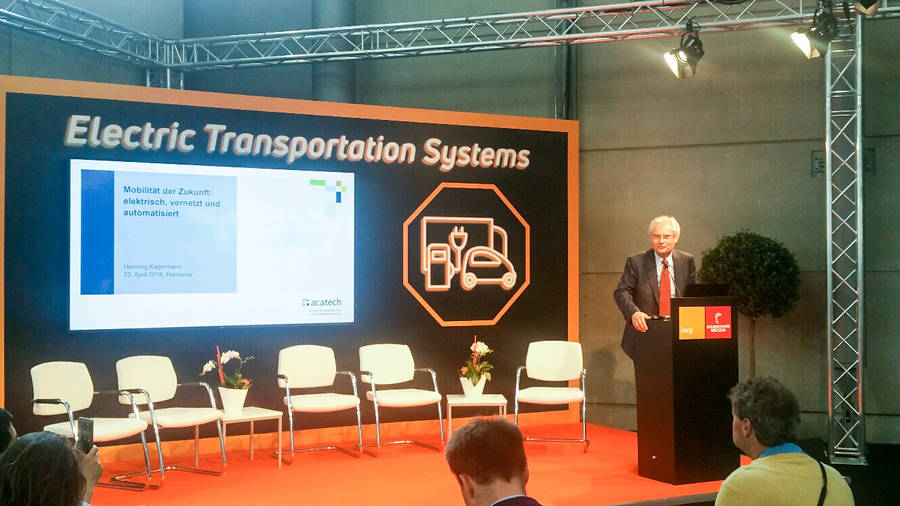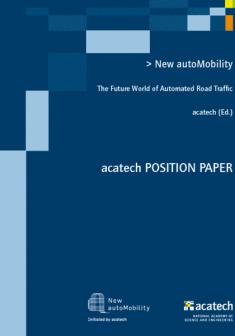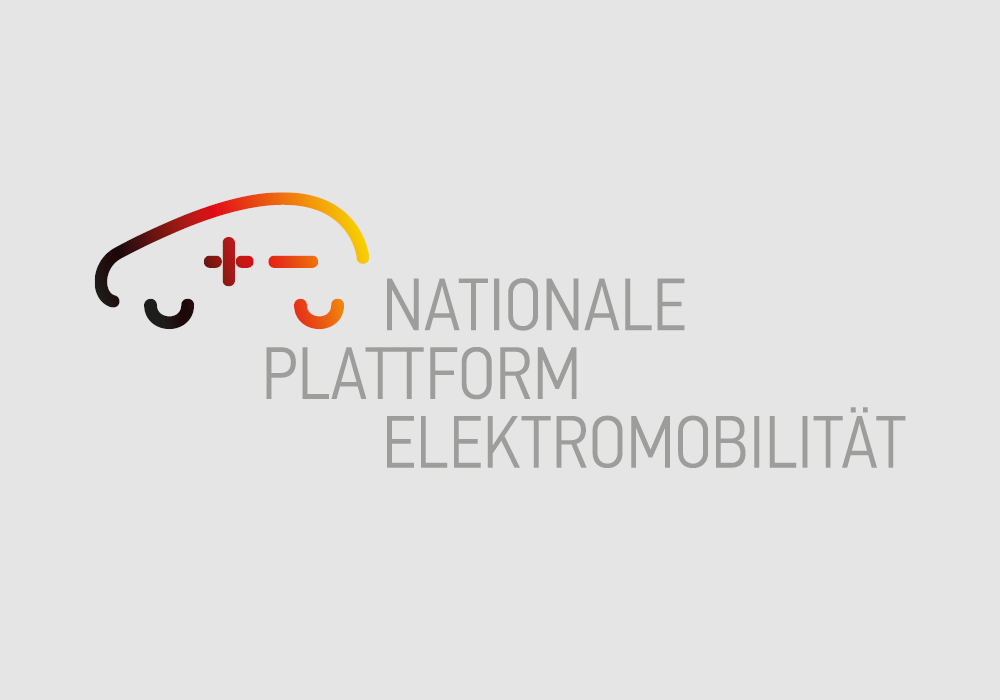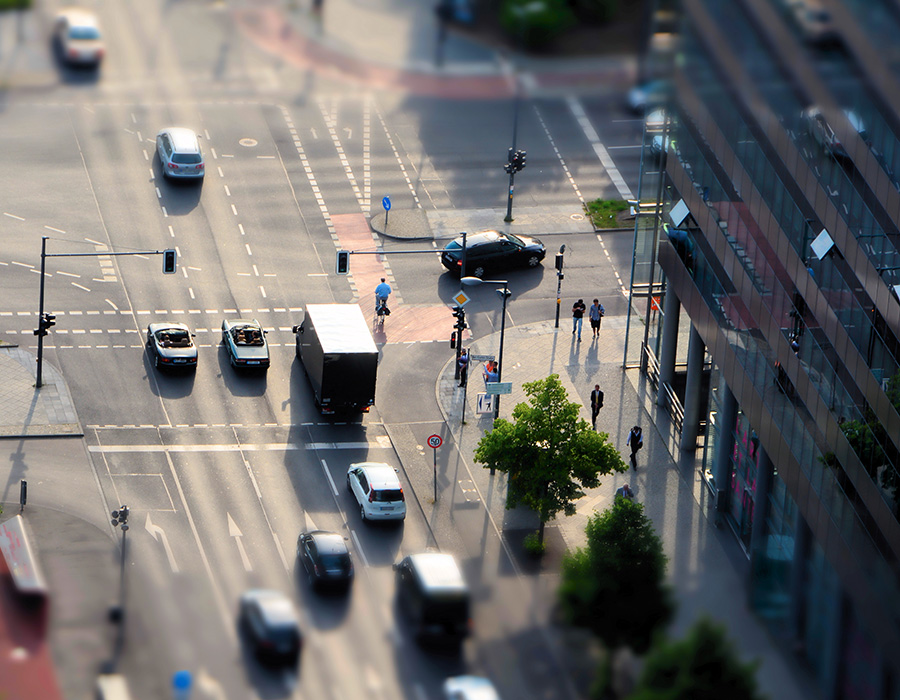Henning Kagermann opens Electric Transportation Systems Forum at the Hannover Messe

Hannover, 23 April 2018
Chair of the German National Platform for Electric Mobility (NPE) and acatech President Henning Kagermann opened the Electric Transportation Systems Forum at the Hannover Messe in his capacity as the Forum’s patron. In his opening address, he outlined the future megatrends in the mobility sector and described how the mobility transition can be approached in an integrated manner. In order to create a sustainable transport system, we need a more joined-up approach to electrification, automation, digitalisation and connectivity.
Electric vehicles will form an integral part of the mobility transition – they have a smaller climate footprint, produce zero local emissions and are the most energy-efficient means of transport. But there is more to the mobility transition than switching to an electric drivetrain. Another key aspect is the progressive automation of our vehicles, which promises improvements in road safety – as long as it is thoroughly tested and is introduced gradually onto the market once it is ready. Fully automated or autonomous vehicles will improve access to mobility for people with restricted mobility and enhance commuters’ quality of life by reducing the demands on their time and patience.
There is a close link between automation and the trend towards digitalisation and connectivity in vehicles and the transport infrastructure. In the future, digital representation of the traffic system will enable intelligent traffic management and smart, flexible mobility solutions tailored to users’ individual needs. In the words of Henning Kagermann, “Carsharing services and their popularity with users are an indication that the mobility transition is already well underway. They play a particularly important role in winning over new customer groups by giving people the chance to experience electric mobility for themselves. They are a great example of how the mobility transition can help to create a sustainable transport system.”
In conjunction with data-driven business models, combining the key trends of electrification, automation and connectivity could generate new synergies. Thanks to connectivity, for instance, when a vehicle that is being parked or driven automatically heads for the nearest charging station, other electric vehicle drivers would be directed to other free charging points. This illustrates the huge potential of the new mobility to facilitate seamless traffic flows.
The opening address was followed by a discussion of the most pressing challenges and areas where action is required in the context of the mobility transition. Henning Kagermann was joined by Baden-Württemberg Minister of Transport, Winfried Hermann, Vice-President of the European Commission in charge of the Energy Union, Maroš Šefčovič, and Commissioner for Internal Market, Industry, Entrepreneurship and SMEs, Elżbieta Bieńkowska.
The Electric Transportation Systems Forum is the special electric mobility exhibition area at the Hannover Messe. It replaces the MobiliTec exhibition, for which Henning Kagermann had also been the patron on previous occasions.
Further information





